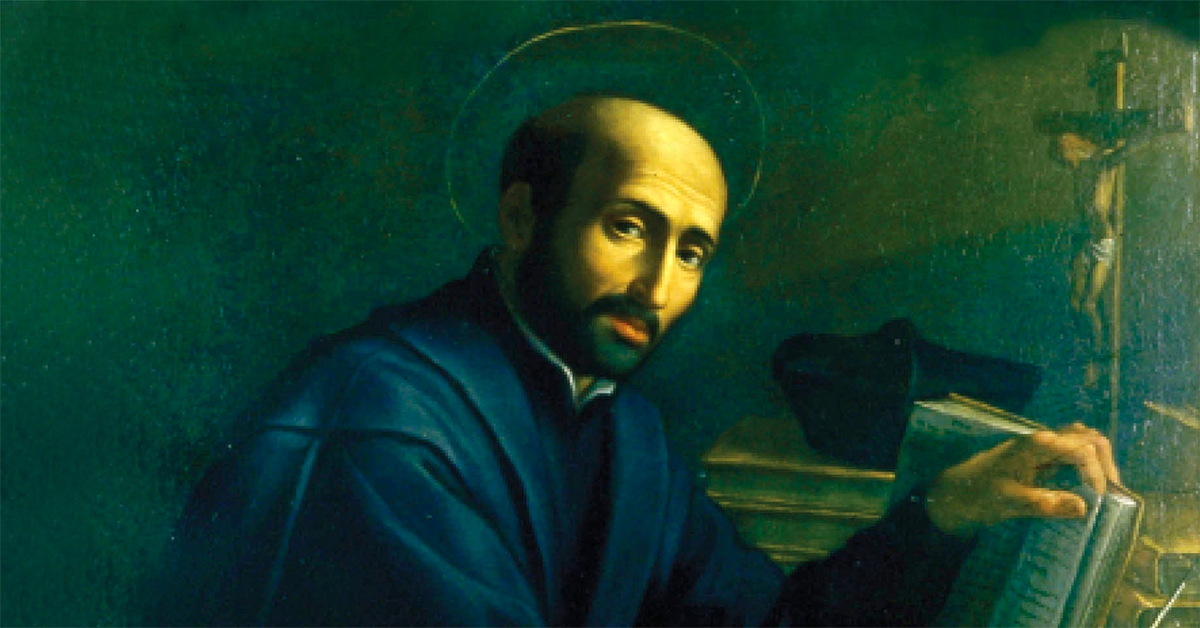
21 Aug August 2023 Reflection – Michael McFarland SJ
St Ignatius & Education
St. Ignatius Loyola, whose feast we just celebrated on July 31, was the founder of the Society of Jesus, and also of the Roman College, which later became the Gregorian University. Ignatius was a soldier, hardly a scholar; but after his conversion, when he set out to “help souls,” he found that his lack of education was a serious detriment to his ambitious plans to bring people to God. After a couple of false starts, he ended up attending the University of Paris, the finest school in Europe at that time, where he earned a Master of Arts degree. It was also in Paris that he befriended Francis Xavier and Peter Favre, the beginning of a group of companions who eventually became the Society of Jesus.
From this experience, Ignatius had come to appreciate the power of education to transform lives and build strong communities. As he wrote in the Jesuit Constitutions, the two qualities most necessary for apostolic effectiveness are a virtuous life and “learning.” That led early on to the founding of the Roman College, which was established to prepare Jesuits and other clergy to spread the Word of God, strengthen the Church and effectively counter its enemies. At about the same time, the Jesuits were asked to take on a school for lay students in Messina, Sicily. This was soon followed by many others, and before they knew it the Jesuits were heavily involved in education, which proved to be not only a valuable service to the Church and society, but also a rich source of vocations.
The model the Jesuits used for their schools was based on classical humanism, rather than the highly specialized and siloed approach taken by the universities at that time. It was a broad-based, wholistic curriculum that encouraged critical thinking, understanding of the human person and society, strong communication skills and the formation of good character, all the qualities needed for active citizenship and effective ministry. This approach, very similar to what we would call liberal arts education today, was rooted in Ignatius’s conviction that God’s creative, life-giving presence can be found in all creation and especially in what is most human, often referred to as “finding God in all things.” It continues to be central to Jesuit education, including at the Gregorian University, where students preparing for ministry study not only theology, but also a wide range of other subjects, including philosophy, the social sciences, law, ethics and communications. Even in highly specialized programs, such as at the Biblical Institute, students study not only Biblical texts, but the ancient history, languages and cultures that formed them and how they apply to contemporary issues such as war and mass violence, migration, social and economic justice and ecology.
Jesuit education has always been exceptionally effective at producing graduates that are thoughtful, creative, knowledgeable, compassionate and committed to service. That certainly applies to graduates of the Gregorian and its related institutes. A particularly inspiring example is Professor Alice Laffey, who died on the eve of the Feast of St. Ignatius this year. Prof. Laffey was the first woman to receive her doctorate from the Pontifical Biblical Institute, where she came to appreciate the help and support she received from many of the Jesuits there, who helped mitigate the discouraging effects of the male-dominated clerical culture she encountered in Rome. When she returned to the US, she found a position teaching the Old Testament at the College of the Holy Cross, the Jesuit liberal arts college in Worcester, MA. She was a very active and highly respected faculty member there for 36 years. She embraced the Jesuit values of the College, and had an enormous impact on students, faculty, staff and the community. In addition to introducing generations of students to the riches of Scripture and the transformative power of God’s Word, she was an astute, caring and beloved mentor to many, including first-year students, pre-meds, and students exploring vocations to the Jesuits, other religious orders and ministry in general. Her influence was especially strong because of the integrity with which she lived out her beliefs. She participated in the religious life of the College, became very involved in social justice and environmental issues and advocated fearlessly for students, faculty and staff whom she thought were being treated unfairly. She became a board member and strong supporter of the Nativity School of Worcester, a Jesuit, tuition-free middle school for students who otherwise would be left behind by the system because of their socioeconomic status. She was also a prophetic voice insisting on integrity, fairness and transparency in the Church. Prof. Laffey’s story is especially compelling; but it is not atypical of thousands of graduates of the Gregorian University and the Biblical and Oriental Institutes who have taken the gift of their Jesuit education and used it to witness to God’s Word in Christ and have transformed countless lives and communities through their efforts.
Michael C McFarland, SJ
President, Gregorian University Foundation



